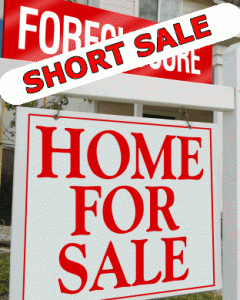
SACRAMENTO, Calif.–(BUSINESS WIRE)–The California Department of Real Estate (DRE) has reported a sharp increase in the number of cases involving short sale fraud. In response, the Department has issued a new consumer alert detailing the perils and pitfalls of short sales and has begun posting its administrative actions filed against violators on the DRE web site to help consumers avoid the short sale culprits.
“Hopefully with the new Consumer alert and other educational efforts we can curtail the fraud”
One year ago, DRE investigated fewer than 10 cases involving short sales. Today the case load has increased to over one hundred and the number is growing.
“We saw a similar ground swell with the loan modification scams,” said Real Estate Commissioner Jeff Davi. “Hopefully with the new Consumer alert and other educational efforts we can curtail the fraud,” Davi added.
A short sale transaction involves the sale of a property that is less than the amount of the mortgage loan(s) on the property. In order to complete the sale, the seller requests the lender accept less than what is owed in order to allow the transaction to close. While short sales are a popular alternative to foreclosure, like all real estate transactions, they are complicated and sellers need to lookout for the pitfalls and red flags.
Consumers need to take particular care with the representatives they hire to negotiate short sales and be especially leery of any upfront fees. With limited exceptions, short sale negotiators need to be a licensed real estate broker or salesperson working for a broker. Before engaging the services of a person or entity to negotiate a short sale, check out their license status on the DRE’s web site. In addition, consumers should not pay anyone wanting an advance fee without checking with the DRE.
Again, with limited exceptions, demanding payment upfront for short sale negotiation services is illegal. Finally, sellers and buyers should be cautioned that any payments that are not clearly disclosed in the escrow and closing documents is a red flag and an indication of fraud.
A few of the key elements a homeowner should look out for are the following:
* Do not pay an advance fee to a short sale negotiator without checking with the DRE.
* Short sale negotiators must be licensed real estate brokers (or a licensed real estate salesperson where that person is working under the supervision of his or her broker).
* Any and all payments must be fully disclosed and made part of the escrow documents. If there are any fees to be paid “outside” of escrow, this may be the red flag that the payment is illegal.
* If your agent explains that the buyer is a fictitious person or entity, or your buyer is purchasing the property under a power-of-attorney or is a limited liability company (LLC), this may be a red flag that fraud is involved in your transaction.
* If you are told that an unlicensed processor, negotiator or facilitator is handling your short sale, this is a red flag that unlicensed activity is taking place. Only real estate licensees, California lawyers acting as lawyers and investors acting on their own behalf can engage in short sale negotiations.
* Be wary and cautious when thinking about retaining the services of people or companies calling themselves “specialists”, “experts”, or “certified” in the area of short sales. View the claims of expertise, certification, and specialization with a critical eye, verify the claims, and ask specific, detailed questions.
For a copy of the alert and list of actions involving short sales and other consumer tips, visit Department of Real Estate and click on the Consumer Tab.


